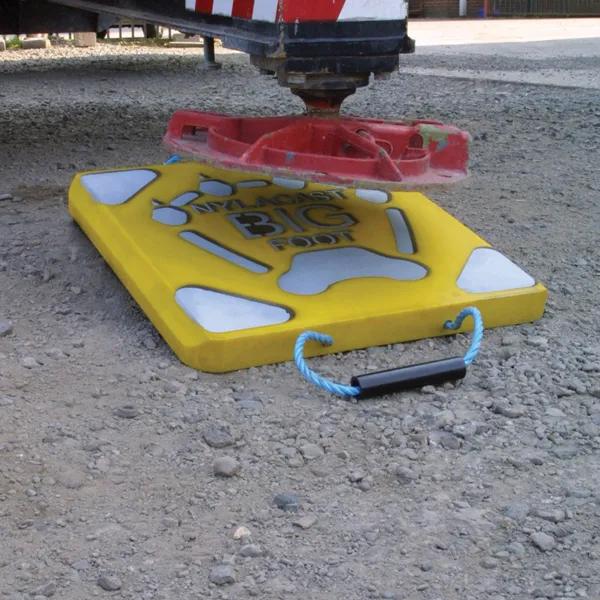UK firm Nylacast now has a novel solution for boosting safety on machines featuring outrigger stabilisers.
February 22, 2012
Read time: 1 min

UK firm 736 Nylacast now has a novel solution for boosting safety on machines featuring outrigger stabilisers. The Nylacast Big-Foot pads can be fitted underneath the outrigger stabilisers of a machine, preventing damage to asphalt surfaces and also helping to spread the load and improve machine safety. These units are of particular use on uneven terrain. The cast nylon based Nylacast Bigfoot outrigger pad is said to outperform wood and polyethylene pads and has passed the most stringent industry safety tests. Recent independently verified tests on Nylacast cast nylon based Bigfoot, under load on dry and wet sand have shown that they outperform polyethylene pads, even when thickness was reduced by 25%. Additionally, Nylacast Bigfoot also outperformed in plastic recovery, with Nylacast Bigfoot measuring both a faster rate of recovery and less permanent deformation than an identical PE pad.
From the independent analysis, for a given ground loading Nylacast Bigfoot is capable of safely supporting 1.6 times more load than to meet conjunction for a reliable, strong and safe outrigger pad made from a tough, affordable material, strong enough to withstand heavy weights and light enough to carry around.
From the independent analysis, for a given ground loading Nylacast Bigfoot is capable of safely supporting 1.6 times more load than to meet conjunction for a reliable, strong and safe outrigger pad made from a tough, affordable material, strong enough to withstand heavy weights and light enough to carry around.








